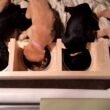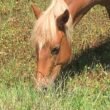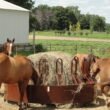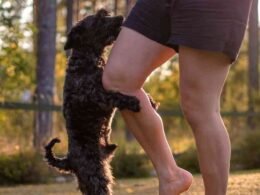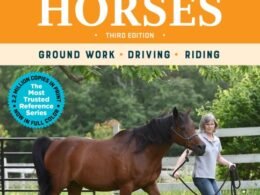Horses should not be fed grass clippings because they can cause digestive issues and be contaminated with harmful substances. Grass clippings should not be fed to horses as they can lead to digestive problems and may contain toxic elements.
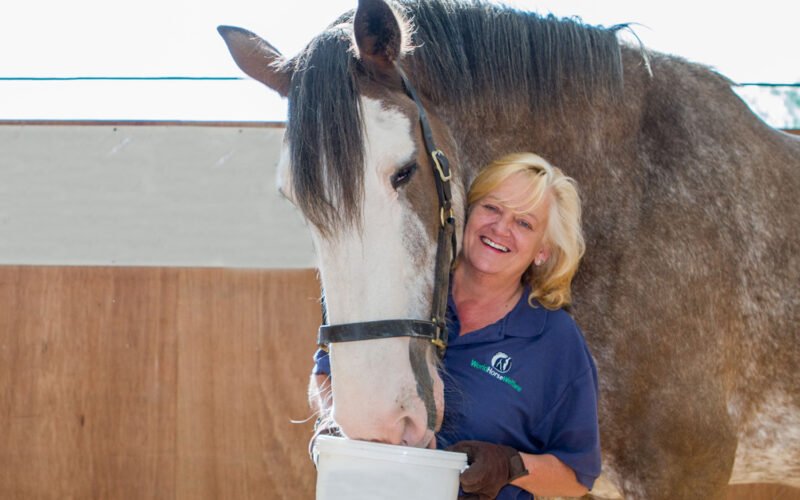
When horses consume grass clippings, they can experience discomfort, colic, or even develop an impaction in their digestive system. Additionally, the grass clippings may contain pesticides or other chemicals that could be harmful to the horse’s health. It is important to provide horses with fresh pasture or hay as their main source of forage to ensure their dietary needs are met.
Feeding them grass clippings should be avoided to prevent any potential harm and maintain their digestive health.
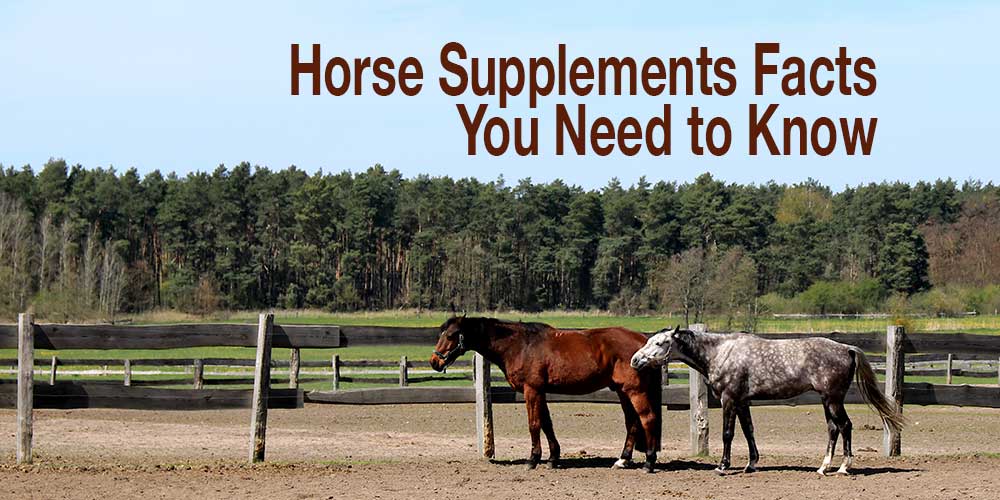
Credit: www.grandmeadows.com
What Are Grass Clippings And Why Are They Attractive To Horses?
Grass clippings are a common byproduct of lawn maintenance, consisting of freshly cut grass blades. Horses are naturally attracted to these clippings due to several factors. Firstly, grass clippings can be a source of nutrition for horses as they contain essential nutrients like fiber, protein, and vitamins.
Secondly, the smell and taste of fresh grass may entice horses to consume the clippings. Additionally, the texture and moisture content of grass clippings make them more palatable for horses compared to dry hay. It is important to note, however, that not all grass clippings are suitable for horses.
Clippings from lawns treated with pesticides or herbicides should be avoided as they can be toxic to horses. Similarly, clippings that have been left exposed to the sun for a long time may ferment and cause digestive issues. Prior to feeding horses grass clippings, it is crucial to ensure that they are safe and free from any potential hazards.
Potential Risks And Dangers Of Horses Consuming Grass Clippings
Consuming grass clippings can pose potential risks and dangers to horses. Digestive upsets and colic are major concerns when horses ingest grass clippings. The clippings can cause blockages in the digestive system, leading to discomfort and potentially life-threatening colic. Another risk is chemical contamination and pesticides.
Grass clippings may contain harmful chemicals from garden treatments or weed killers, which can be toxic to horses. Mold and fungal infections are also a concern since the clippings can quickly develop mold and fungus, leading to respiratory issues and other health problems for the horses.
Therefore, it is crucial to prevent horses from consuming grass clippings to ensure their well-being and overall health. Proper pasture management and feeding practices are necessary to keep horses safe and healthy.
The Role Of Grass Clipping Management In Horse Farms
Grass clippings can play a vital role in managing horse farms by providing nutrition and reducing waste. Proper lawn care practices can ensure that the clippings are safe for horses to consume. It is important to avoid using pesticides or herbicides on the lawn, as they can be harmful to horses.
Additionally, regularly mowing the grass at the correct height can promote healthy growth and prevent the clippings from being too long or becoming tangled. Safe disposal strategies, such as composting or using the clippings as mulch, can also be beneficial for horse farms.
By following these practices, horse owners can utilize grass clippings effectively while maintaining the health and safety of their horses.
Best Practices For Feeding Horses Grass Clippings
Feeding horses grass clippings should be done in moderation and with quantity control. Ensuring that you don’t overfeed your horses is crucial to their health and well-being. It’s important to prepare the grass clippings properly before offering them to your horses.
Remove any weeds, chemicals or contaminants that may be present. Additionally, be mindful of the quantity you give to your horses, as too much can upset their digestive system. Proper storage techniques should also be followed to maintain the freshness and nutritional value of the grass clippings.
By following these best practices, you can safely incorporate grass clippings into your horses’ diet while keeping their health in check.
Other Alternatives To Grass Clippings For Horses’ Forage
Horses should not eat grass clippings as they can be harmful to their digestive system. Instead, there are other alternatives for horses’ forage. Hay and pasture are important sources of nutrition for horses. They provide essential nutrients, fiber, and exercise.
It is crucial to ensure that horses have access to good-quality hay and plenty of grazing time in pastures. In addition to hay and pasture, there are commercial forage options available for horses. These can include hay cubes, haylage, and even specialized feeds designed for horses’ specific nutritional needs.
It is important to consult with a veterinarian or an equine nutritionist to determine the best forage options for your horse. By providing the right forage alternatives, you can ensure that your horse stays healthy and happy.
Frequently Asked Questions
Yes, horses can eat small amounts of fresh grass clippings without any issues. However, it is important to avoid giving them large amounts or clippings that have been sitting for a while, as this can lead to digestive problems.
Feeding horses large amounts of grass clippings can pose risks such as colic and founder. This is because the clippings can ferment quickly and lead to an imbalance in the horse’s gut, causing digestive issues. It’s best to limit the amount of grass clippings given to horses.
If you want to feed your horse grass clippings, it’s important to prepare them properly. Firstly, make sure the clippings are fresh and free from any chemicals or pesticides. Also, spread them out thinly to allow them to dry before feeding, as wet clippings can heat up and become moldy.
It is not recommended to feed horses grass clippings that have been treated with herbicides. These chemicals can be harmful to horses and may cause various health issues. To ensure the safety of your horse, always use untreated grass clippings or consider alternative sources of forage.
If you’re looking for alternative sources of forage, there are several options available. Hay is a common and safe choice for horses, as it provides the necessary nutrients without any potential risks. Other forage options include pasture grazing and specially formulated horse feeds.
Consult with a veterinarian or equine nutritionist for the best options for your horse’s specific needs.
It is recommended to feed horses small amounts of grass clippings, around a handful or less per day. This should be given as a treat and not as a main source of forage. Remember to always monitor your horse’s health and digestion, and if any issues arise, consult with a veterinarian for guidance.
Conclusion
To wrap up our discussion on whether horses can eat grass clippings, it is important to remember that moderation is key. While grass clippings can be a convenient option, it is essential to consider the potential risks and make informed decisions for your horse’s diet.
Horses, being herbivores, naturally graze on grass, but there are certain factors to be aware of. First and foremost, avoid using clippings from lawns treated with herbicides or pesticides. Also, be cautious when the clippings are damp or have been left out for too long, as they can ferment and lead to digestive issues.
It is always advisable to consult with a veterinarian or equine nutritionist to ensure your horse’s dietary needs are being met. Ultimately, by carefully managing the quality and quantity of grass clippings in your horse’s diet, you can provide a balanced and healthy feeding routine.





